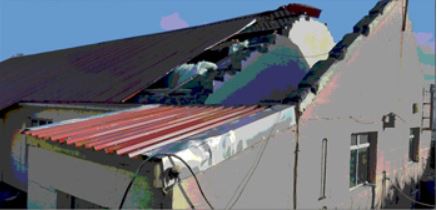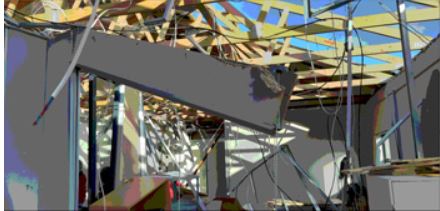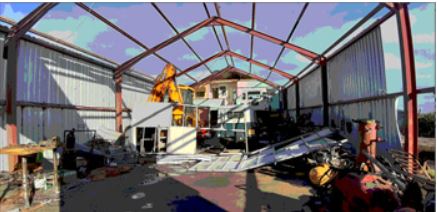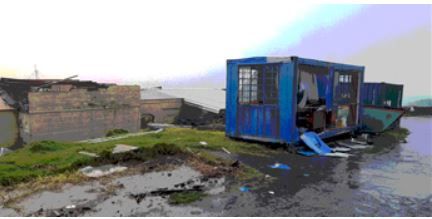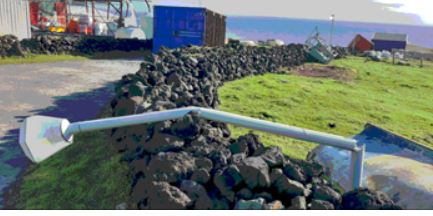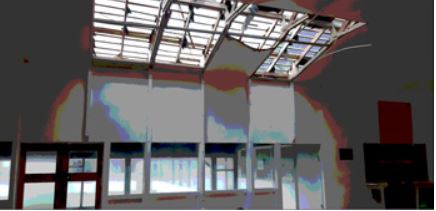The last few weeks have seen extreme weather conditions of such a ferocity that they have been unusual, even for the windy island of Tristan.
The first storm-related events were in connection with the fishing- and cargo-ship the Edinburgh, which arrived off the island from Cape Town on 21 June. She was carrying 12 passengers, fresh fruit and vegetables and other foodstuffs, and general cargo. Because of sea conditions the passengers were unable to disembark and the ship sheltered in the lee of the island. The following day there was a brief improvement in the weather, but a very bad forecast for the following week, and the unusual decision was made to anchor the Edinburgh to the east of the island and to take the passengers off in two RIB’s. It must have been a very uncomfortable trip into Tristan’s tiny storm-bound harbour.
The weather was monitored closely to seize any opportunity to continue unloading, and an attempt was made on June 28 but had to be abandoned. It was not until the 9 July that conditions permitted unloading to be recommenced in earnest, and the Edinburgh finally departed for Cape Town on 11 July. Thus it was three weeks that the ship was at the island, waiting for the weather. For the whole of that time the passengers who were due to depart on the ship were on permanent standby to go on board, with their bags packed, their good-byes said, and their refrigerators cleaned out.
This was just the forerunner of a very serious storm which hit the island on the night of 18 July. An idea as to just how serious this was can be conveyed by listing the damage that was done by the storm. The electrical system went down, and many buildings had some or all of their roofs stripped off by the wind – this included the Admin Building, the Police Station, the Post Office + Tourism Building, the Mechanical Workshop, the School, and the Residency. The damage done by the storm was not limited to the removal of roofing and walling sheets, but since the storm was accompanied by very heavy rain there was substantial damage done to the contents of some of the buildings. The extent of this damage is not yet known, but we can probably assume that most or all of the computers and archives have been destroyed. One of the most serious losses has been the entire communications system, consisting of telephones and internet. The island was dependent on the use of satellite phones to raise the alarm with the outside world. Since then a line of contact has been arranged through CTBTO, which has a station on the island with a weak but functioning link to the outside world.
It is a great relief to be able to relate that no person was injured on the night of the storm. There was also quite limited damage to any of the islanders’ houses, with just one house experiencing significant damage. Also, the electrical system is now again operational, and by great good fortune the island shop and warehouse were not damaged, so food security is not an issue.
What is remarkable is the speed of the steps that have been taken by the British Government in the few days since the alarm was raised. An extra-to-schedule ship will be leaving Cape Town in the next few days, bringing materials and equipment to get things repaired as far as possible. Contractors have been appointed, and electrical and communication engineers will be travelling out on the ship. Also on the ship will be the Administrator and his wife, who will be breaking off their UK leave and returning to the island to help co-ordinate the works.
The last serious storm to affect Tristan was on 7 June 2001, when 120-mph winds ripped roofs off buildings and when there was apparently heavy loss of cattle.
